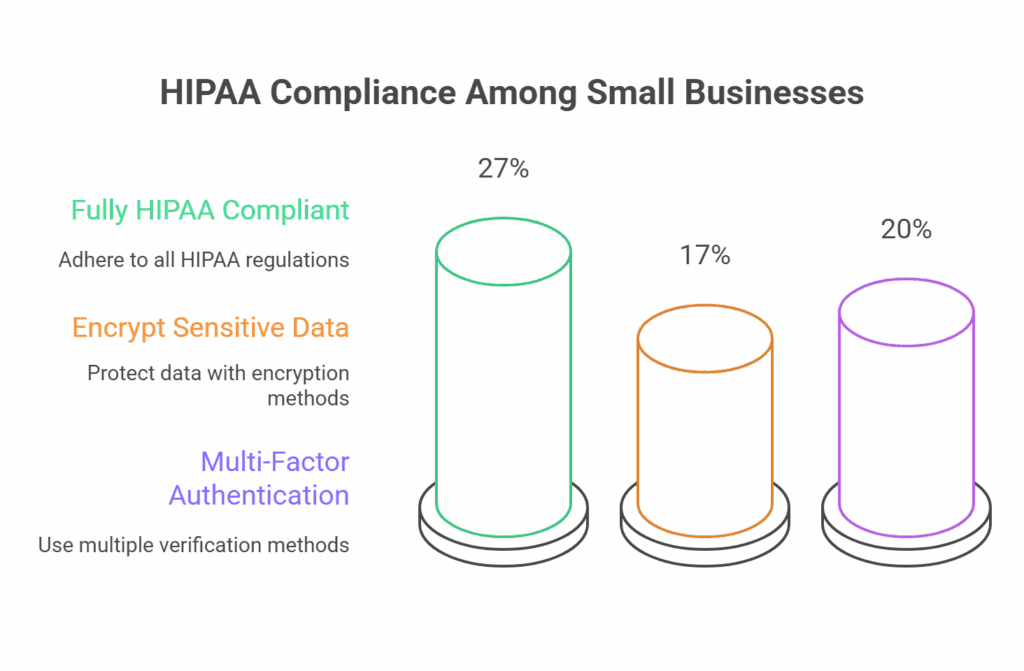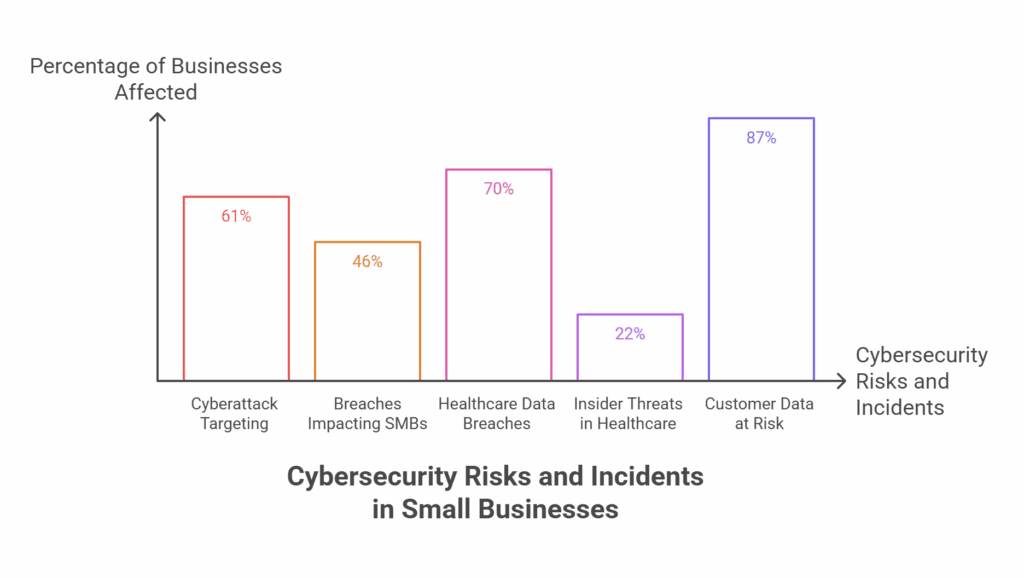HIPAA stands for the Health Insurance Portability and Accountability Act. It was established to ensure that sensitive patient data, known as protected health information (PHI), stays secure and private. For businesses like clinics, therapists, health coaches, and billing services, small business HIPAA compliance is crucial.
These businesses often handle sensitive patient data. Ensuring its protection is not only a legal obligation but also a commitment to your clients' trust. When your business complies with HIPAA, you assure your clients that their information is safe, which builds trust.

Furthermore, small business HIPAA compliance helps you avoid legal issues. Non-compliance can lead to severe penalties, including fines and legal action. Therefore, embracing HIPAA guidelines is essential for the integrity and success of your business.
Key HIPAA Requirements for Small Businesses
For any organization handling patient data, small business HIPAA compliance is non-negotiable. Whether you're a solo practitioner or run a small health-related business, following HIPAA guidelines protects your clients' privacy and shields your business from legal risk. Here are the essential requirements:
- Secure Storage and Transmission of Health Data
Encrypt all protected health information (PHI) to prevent unauthorized access—whether it's stored locally or shared digitally. - Access Control Measures
Limit PHI access to only authorized personnel to reduce the risk of internal data breaches. - Staff Training
Train employees on HIPAA rules, PHI handling, and data security best practices to ensure consistent compliance. - Business Associate Agreements (BAAs)
Sign BAAs with any third-party vendors handling PHI to confirm they also meet small business HIPAA compliance requirements. - Breach Notification Protocols
Establish a plan to notify individuals and authorities quickly and according to HIPAA guidelines if a breach occurs.
Meeting these HIPAA requirements builds trust with your clients and helps protect your small business from costly violations. Prioritizing small business HIPAA compliance is both a legal necessity and a smart business move.
Steps for Small Businesses to Ensure HIPAA Compliance
Achieving and maintaining small business HIPAA compliance requires the right mix of secure tools and proactive strategies. Here are key practices and technologies to help safeguard sensitive patient data:
- Use of Encrypted Communication Tools
Choose platforms with end-to-end encryption to ensure secure transmission of patient information. - Password-Protected Systems
Protect files with strong, regularly updated passwords to reduce the risk of unauthorized access. - HIPAA-Compliant CRMs
Use CRMs specifically built for HIPAA compliance to manage patient data securely and meet all legal requirements. - Regular Risk Assessments
Evaluate your systems and workflows routinely to uncover and fix any security gaps. - Policy and Technology Updates
Keep your data protection strategies up to date to stay ahead of emerging threats and evolving regulations.
Staying current with these tools and best practices helps ensure your business meets all small business HIPAA compliance requirements, building trust and reducing risk in your operations.
Consequences of Non-Compliance

Failing to meet small business HIPAA compliance standards can have serious consequences. Here’s what’s at stake:
- Financial Penalties
Non-compliance can result in hefty fines that severely impact your bottom line. - Legal Action
Mishandling protected health information (PHI) can lead to lawsuits—costly, time-consuming, and damaging. - Reputational Damage
A data breach can erode client trust, leading to lost business and long-term harm to your brand. - Loss of Client Confidence
Clients expect their personal health data to be secure—non-compliance may drive them away permanently. - Compliance Record Issues
Without thorough documentation, your business may struggle to prove adherence to HIPAA regulations during audits.
Maintaining small business HIPAA compliance helps protect your clients, avoid penalties, and preserve your reputation in the healthcare or wellness space.
Leveraging Fuzen’s Custom CRM for HIPAA Compliance
For small businesses handling patient data, achieving HIPAA compliance can be challenging—especially without the right tools. Fuzen offers a secure, no-code CRM platform built to simplify small business HIPAA compliance while keeping costs low.
- Custom HIPAA-Compliant CRM
Manage patient records, consent forms, and communication logs securely—without needing developers. - Permission-Based Access Control
Limit data access to authorized users only, aligning with HIPAA access requirements. - Built-In Compliance Documentation
Track compliance efforts easily with custom fields and automated record-keeping. - Custom Cost Model
Avoid recurring software fees—Fuzen offers HIPAA-compliant solutions at a custom development cost. - AI-Assisted Customization
Use simple prompts to build secure workflows and forms tailored to your business needs. - Ready-to-Use Templates
Start fast with healthcare-ready CRM templates designed to meet HIPAA standards.
Fuzen helps small businesses stay compliant with HIPAA while managing sensitive data securely and efficiently. It’s a scalable, cost-effective solution built for long-term peace of mind.
Conclusion
Maintaining small business HIPAA compliance is essential for protecting patient data, avoiding legal penalties, and building client trust. With Fuzen’s no-code, secure CRM platform, small businesses can easily meet HIPAA requirements without technical expertise or recurring costs.
From access control to automated compliance tracking, Fuzen provides all the tools you need to stay compliant and focused on delivering quality care. Explore Fuzen and build your HIPAA-compliant CRM today.

Pushkar is a seasoned SaaS entrepreneur. A graduate from IIT Bombay, Pushkar has been building and scaling SaaS / micro SaaS ventures since early 2010s. When he witnesses the struggle of non technical micro SaaS entrepreneurs first hand, he decided to build Fuzen as a nocode solution to help these micro SaaS builders.

